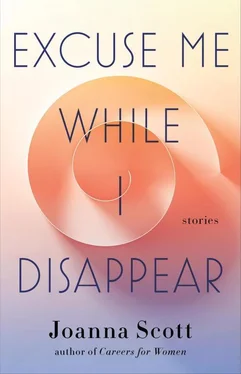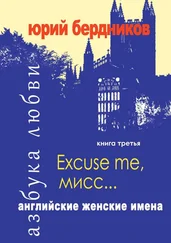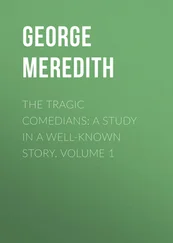Simon, who sits closest, is not much older than Francesco. Has he ever added his own words when he is copying? Francesco is suddenly sure that he is not the only guilty party in the room, as sure as he is that every human being in the world has sins to confess. Day after day, copying word for word… how could a man not hanker to add a few words of his own? It took Francesco four years to discover the thrill, and now there’s no going back. He is Adam, savoring his first taste of a juicy apple, no longer innocent but glad for the adventure.
With the stealth of a spy in an enemy camp, he changes the word ancor to amore . Later, he adds a line about his nonna’s delicious minestrone. Before the day is over, he has inserted letters that spell out vertically down the page, in the Venetian dialect, Francesco was here .
4.
He passes a full year in this manner. His handwriting is neat, his spacing even, and he has conquered his habit of dawdling. The boy is never reprimanded for staring off into space anymore and instead can be counted upon to work diligently, his eyes focused on the paper. He can copy for hours without tiring. The binders are too busy to review all the dozens of quires filled each day. The orders for new books are coming in so fast it’s hard to keep up with them.
Francesco proves so capable that one day the head stationer decides the boy is ready to take on the more complicated task of copying religious texts. These are valuable books, and in their final form they will include miniature illuminations painted by some of the finest artists of the quattrocento. It is essential that they are copied accurately, word for word, in flawless script.
Francesco learns how to build up capital letters and prepare them for the rubricator, who will add color. He practices for weeks. At last, he is given his first breviary and told to pray to God to keep his copy free from errors.
Soon he is copying missals and psalms, Books of Hours, and, finally, whole Bibles.
He finds himself wishing he were a prophet and could write what God told him to write. He imagines presenting to his nonna a Bible that includes the Gospel according to Francesco. But don’t think he would ever intentionally deface a holy book with his graffiti. He respects God’s Word and will be the first to remind his fellows that the Word is with God and God is the Word. Francesco is proud to have a hand in preserving the Word of God, and he is not about to change anything—not even a letter…
Except… except… why, there’s an obvious problem, right here in the verses when Jesus turns water to wine. It’s important to remember that there were animals present in the banquet hall, dogs and cats, even a little monkey—Francesco has seen them in the paintings that hang in the churches of Venice. The animals really deserve a mention. They probably are included in other editions, and the one he is copying has mistakenly left them out. Francesco remedies the mistake and does the good deed of putting the creatures back into the Gospel.
He also adds a note about a noisy seagull in Matthew, and an octopus that escapes the fishermen in Luke. The following week, he adds his surname, Colonna, to the genealogy in Genesis. A few days later, he includes a fire-breathing dragon in the account of Joseph’s dream.
How Francesco loves to dream.
He copies and writes and copies some more, dreaming all the while. The days pass in blissful peace, until late one winter’s afternoon when an angry young prelate appears in the doorway and holds up a Bible, demanding, “Who is responsible for this?”
5.
Vicenzo Constantini is a bright one for sure, on the road to glory. He’ll be an archbishop someday, maybe even a cardinal. He is not yet twenty-five years of age, and he has already had the honor of attending an ecumenical council in Rome. He received his education in the Praglia Abbey at Teolo, outside Padua. During the long hours he spent alone in the extensive library, he read diligently, with close attention. He proved his intelligence in a test borrowed from midrash: when the prelate stuck a pin in a random page of the Bible, Vicenzo could correctly guess the words the pin had pierced on successive pages. His quick intelligence won him a prestigious appointment at San Pietro in Venice. It is unfortunate that the cathedral is hidden in a remote corner of the city, but the young Vicenzo has made it his mission to increase the church’s influence.
The young prelate’s head pokes up out of his white robes like the spadix of a calla lily. He has high-arching brows and thin eyelids lined with blue veins. One of his ears is misshapen, with extra cartilage that makes the lobe hang heavily. His lips will drain to a pale salmon color when pursed in an expression of disgust. He is often disgusted, especially since arriving in Venice. He is disgusted by the waste floating along the fetid canals, the oversized rats that slink underfoot, the buxom wet nurses who let their dresses flop open, the surly drunkards who spray their urine on the sides of buildings. Most of all, though, he is disgusted by the cheap books that are for sale everywhere.
Open one of the books sold by your typical bookseller in Venice and, if you are a fanatical young prelate looking for a cause, you will be shaken to your core. Missing are the devotional verses that are meant to be studied in contemplative silence. In place of God’s law as transcribed by saints and prophets are profound indecencies, unrepeatable in polite society, that hide between simple cloth covers like the pierced hymens of brides who dress themselves in virginal white. Their authors cast obscene lies as truths and fool their readers with the promise that humanity will never have to answer for sin. They call their abominations poetry, modeling themselves after the ancient gluttons who existed in a constant state of intoxication and had no purpose other than to fornicate in olive groves. Do you wonder why Venetians are such a dissolute people? Blame the books that are everywhere, and the permissiveness of a lazy government willing to let the people learn to read. Blame the Fondaco dei Tedeschi for filling the city with pornography. Blame the scribe who dared to deface the holiest of books!
Vicenzo is ablaze with righteousness, a lone crusader leading the battle against the rampant licentiousness that has infected the whole Venetian Republic. He brandishes the Bible he has brought as evidence. If he shakes it hard enough, the monkey that has been added to the feast of Cana will lose its grip and fall straight out of the pages—or so Francesco imagines as he watches, amazed and trembling, from across the room.
The head stationer approaches Vicenzo and asks to examine the Bible. The scribes stare in apprehension at the unfolding scene, many of them worryingly trying to remember what they’d copied recently, and wondering if they had made some grave mistake or indulged in a little creative writing of their own. Ink drips from the reeds held in their paralyzed hands; the drips expand into blots, ruining the paper.
The stationer reads a verse to himself, mouthing the words. The scribes look on, waiting for the verdict, and Francesco looks on with them. When his eyes meet the head stationer’s for a second, the stationer gives a slight jerk of his head to the left, in the direction of the door. Francesco lays down his reed, turns the quire he’s been working on facedown, and runs.
6.
He pushes past the startled Vicenzo and runs down the marble stairs and out of the Fondaco. He runs from the palazzo that has been his home for five years, disappearing into the crowd. He turns every corner he comes to, clambers over bridges and along embankments, splashes through puddles that linger in the covered passageways. He runs down dead ends, turns and runs back in the direction he came from, turns and runs across campi, between walls that hide gardens, through empty markets that smell of rotten fish, past stores already shuttered for the day. There is no time to follow strangers, for Francesco isn’t just running aimlessly, with no place in mind; he is running from the man who is pursuing him.
Читать дальше












